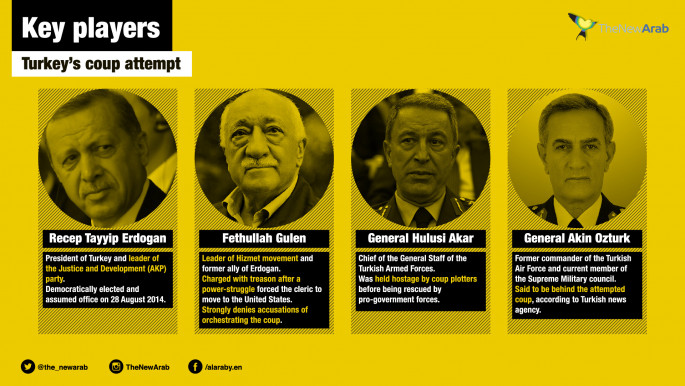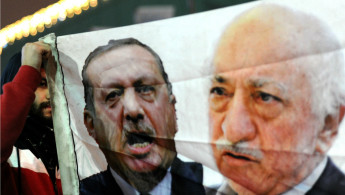Turkey: Erdogan's arch-foe Gulen seeks international probe into coup
US-based Turkish preacher Fethullah Gulen has called for an international inquiry into last month's abortive coup, vowing his "full cooperation" with any such probe of the putsch over which Ankara is seeking his extradition.
Writing in Saturday's edition of French daily Le Monde, Gulen strenuously rejected accusations by Turkey that he ordered the July 15 attempt to remove President Recep Tayyip Erdogan from power.
"I'm asking that an independent international commission investigate this attempted coup," the Pennsylvania-based preacher wrote, promising his "full cooperation."
"If a tenth of the accusations levelled at me are proven I will return to Turkey to face the stiffest punishment," Gulen, 75, added.
A one-time ally of Erdogan turned arch-foe, Gulen has lived in self-imposed exile in the US since 1999.
He has dismissed the accusations against him and his Hizmet movement, which runs a network of private schools, businesses and media outlets, as a "witch hunt."
 |
| [Click to enlarge] |
"Claiming I could, from 10,000 kilometres [6,000 miles] away, push the army to conduct a putsch against the government is slander," he wrote.
"However, if soldiers claiming to be supporters of Hizmet were involved in this plot, I say without hesitation they are felons who have shaken the unity and integrity of the country."
But Gulen said the actions of some such supporters, who may have been "influenced by the army's penchant for intervention... cannot be blamed on all followers of the movement."
Gulen stressed the warm ties he enjoyed with a host of former Turkish leaders, from liberal ex-president Turgut Ozal in the 1980s to his conservative successor Suleyman Demirel and Bulent Ecevit, the social-democratic premier from 1999 to 2002.
"I lent my support to all their policies," he wrote, adding that they in turn had shown him respect because of his movement's work in promoting education and social work.
With Erdogan, who served 11 years as premier before becoming president in 2014, things were different, Gulen said.
"Although I have always had reservations about political Islam I also supported Mr Erdogan and the AKP [the ruling Justice and Development Party] at the start, when big democratic reforms were launched."
But over the past three years, since a corruption scandal embroiling several of Erdogan's ministers erupted, he has been repeatedly accused of running a "parallel state."
Since 15 July, Turkey's crackdown on his supporters has intensified.
Tens of thousands of people from the military, judiciary, civil service and education suspected of links with Gulen's movement have been dismissed from their jobs or detained.





 Follow the Middle East's top stories in English at The New Arab on Google News
Follow the Middle East's top stories in English at The New Arab on Google News


